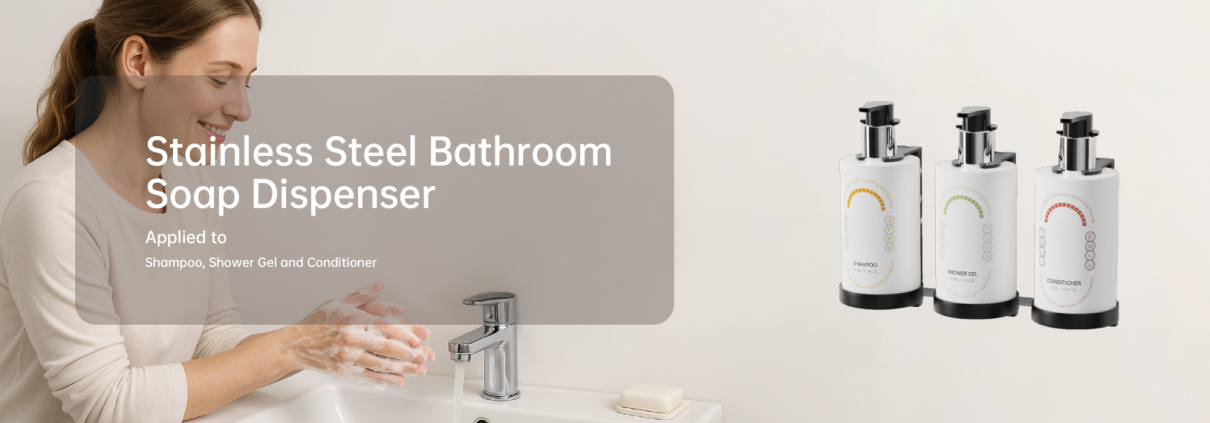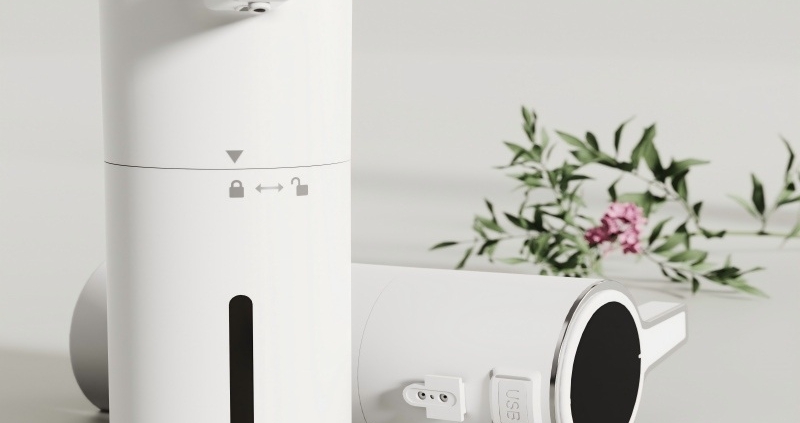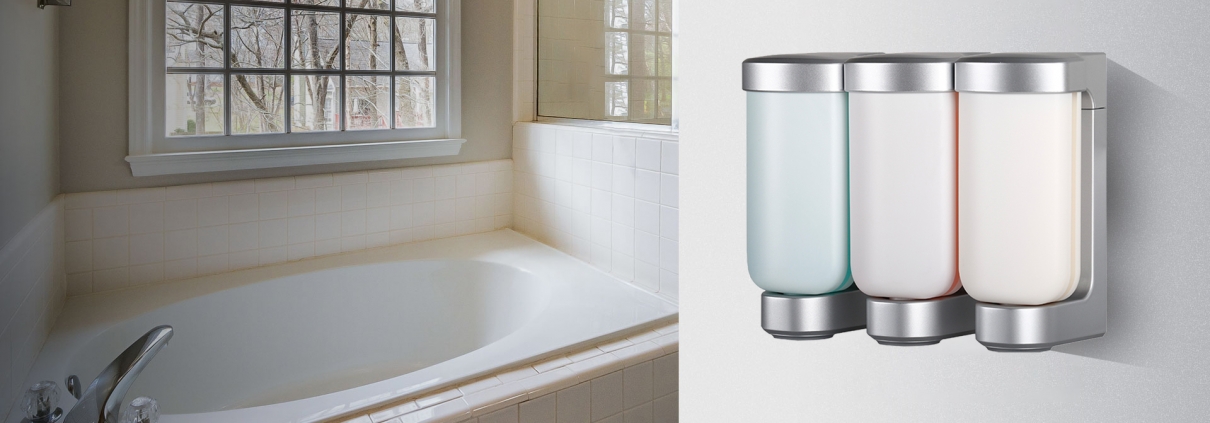The Empty Amenity: How Japan’s Tourism Downturn is Draining the Hotel Bathroom Supply Chain
If you’ve been to Japan in the last decade, you’ve witnessed a golden age of tourism. The streets of Kyoto echoed with a symphony of languages, the shinkansen were perpetually full of eager travelers, and hotel lobbies buzzed with the excitement of new arrivals. This wasn’t just a boom; it was a transformation, reshaping cityscapes and fueling entire ecosystems of dependent industries.
But recently, a profound silence has fallen. The familiar queues have shortened, and the vibrant energy has dimmed. Japan is experiencing a significant and worrying downturn in its tourism economy. While headlines focus on empty hotels and quiet restaurants, the ripple effects run much deeper, reaching into the most unexpected corners of the economy—like the manufacturers of the very soap dispensers, taps, and showerheads in your hotel bathroom.
This is the story of that connection. It’s a story about how global travel patterns, when disrupted, can bring a highly specialized industrial sector to a grinding halt. The hotel bathroom, often an afterthought in the grand narrative of travel, becomes a stark indicator of economic health, and the silent, anonymous companies that furnish it become the canaries in the coal mine.
Part 1: The Golden Age – When Tourism Flowed Like Water
To understand the current crisis, we must first appreciate the scale of the preceding boom. Following the 2011 earthquake and tsunami, Japan embarked on an ambitious campaign to revitalize its image and economy through tourism. The goals set by the government were audacious: 20 million visitors by 2020, the year of the Tokyo Olympics. They smashed that target in 2015. By 2019, Japan welcomed a staggering 31.88 million international visitors.
This influx was an economic tsunami in its own right. It didn’t just benefit airlines and major hotel chains. It created a parallel economy:
* The Ryokan Renaissance: Traditional inns, once struggling, were booked months in advance.
* The Souvenir Surge: Markets from Nishiki to Nakamise thrived.
*The Logistics Lift: Delivery services, taxi drivers, and regional airports saw unprecedented activity.
*The Construction Craze: New hotels sprung up at a frantic pace to meet demand.
Crucially, this boom created a massive, sustained demand for FF&E (Furniture, Fixtures, and Equipment) and OS&E (Operating Supplies and Equipment)**. Every new hotel room, and every occupied existing one, needed to be stocked, maintained, and refreshed. This is where the hidden champions of the hotel bathroom supply industry entered the picture.
Part 2: The Unseen Architects of the Japanese Bathroom Experience
The modern hotel bathroom, particularly in a country obsessed with cleanliness and detail like Japan, is a marvel of micro-engineering and design. It is not an assemblage of off-the-shelf parts but a carefully curated ecosystem of specialized components. The industry that supplies it is a world of B2B specialists, companies you’ve likely never heard of, but whose products you have almost certainly used.
These manufacturers, often small to medium-sized enterprises (SMEs) clustered in industrial zones outside major cities, became the backbone of the tourism boom. Their success was built on several pillars:
- Engineering for Perfection and Scale:The core philosophy driving many of these firms is *monozukuri*—the art and science of making things. A simple automated soap dispenser is not a mere plastic container. It is a feat of engineering.
* Sensor Precision: The infrared sensors are calibrated to ignore ambient light changes, preventing the dreaded “ghost-dispensing” or, worse, failing to dispense at all.
* Durability: Products are built to withstand millions of actuations, resistant to corrosion from a vast range of liquid soaps and sanitizers, and designed with vandal-resistant features for high-traffic public areas.
* Aesthetic Integration: These companies offer a range of finishes—brushed steel, matte black, warm bamboo-look plastics—that allow hotel designers to make every fixture an integrated part of the bathroom’s aesthetic, rather than an afterthought.
- The “Touchless” Revolution:Even before the pandemic, the trend towards touchless fixtures in high-end hospitality was accelerating. Sensor-operated taps, soap dispensers, flush toilets, and even amenity dispensers for shampoo and conditioner became standard in mid to high-tier hotels. For a luxury hotel in Tokyo or a boutique ryokan in Hakone, installing these touchless systems was a silent signal of quality, modernity, and hygiene—a small but significant detail that contributed to the overall guest experience and justified premium room rates.
- The Complex Supply Chain Symphony:The production of these bathroom ecosystems was a well-orchestrated effort. A single manufacturer of, say, a smart shower system, would rely on a network of specialized suppliers: a small factory in Nagoya making the specialized microchips for temperature control, another in Kyushu producing the food-grade plastic resins for the body, a foundry in Tsubame-Sanjo crafting the custom brass fittings, and a chemical company providing the specialized seals. This created a robust, localized industrial ecosystem entirely geared towards fulfilling the demands of a thriving hospitality sector.
During the boom years, these companies weren’t just successful; they were essential. Their order books were full, production lines hummed, and they invested heavily in R&D for the next generation of smart, connected bathroom amenities. Their success was a direct function of Japan’s tourism health. When hotels were full, they needed more fixtures for new builds and replacements. High occupancy rates meant more consumption of amenities and more wear and tear, leading to a constant cycle of replenishment and refurbishment.
Part 3: The Great Drain – Tourism’s Sharp Decline and its Cascading Effects
The decline, when it came, was brutal and multifaceted. It wasn’t a single event but a confluence of powerful, negative forces that have converged on the Japanese tourism landscape.
- The Macro-Economic Squeeze:The most significant factor is the severe and prolonged weakness of the Japanese Yen. While a weak currency traditionally makes a country a cheaper destination for inbound travel, the current situation has a dark underbelly. It has dramatically increased the cost of outbound travel for Japanese citizens and, more critically, has skyrocketed the cost of imports. For a country that imports the majority of its energy and food, this has triggered a painful domestic cost-of-living crisis. Domestic disposable income has shrunk, leading to a sharp decline in *kokunai kanko* (domestic tourism). Japanese families are cutting back on trips to Okinawa or Hokkaido, opting for staycations or day trips instead. This directly hits the vast segment of the hotel industry that relies on domestic travelers, who account for a massive portion of total revenue.
- The “Overtourism” Backlash and Strategic Pivot:In the years leading up to the pandemic, popular destinations like Kyoto and Kamakura were suffering from severe overtourism. The backlash from locals was growing, leading to discussions about sustainable tourism. In response, the Japanese government and tourism board have subtly shifted their strategy post-pandemic. The new goal is not just to increase numbers, but to attract “high-value” tourists who spend more and travel more dispersively. While a sound long-term strategy for sustainability and community relations, this has inevitably resulted in a slower recovery in sheer visitor numbers compared to the pre-2019 frenzy. The budget traveler who filled up budget hotel chains—the very chains that consumed high volumes of standard bathroom fixtures—is now a less targeted demographic.
- Geopolitical Friction and Perception Issues:Strained relations with some of its largest pre-pandemic tourist sources, namely China and South Korea, have also played a role. Political tensions, coupled with ongoing concerns about the treated water release from Fukushima, have dampened enthusiasm in these critical markets. Travel advisories and negative media coverage can be powerful deterrents, leaving a lasting impact even after diplomatic relations cool.
- The Global “Revenge Travel” Hangover:The initial, explosive burst of “revenge travel” after border reopenings has subsided globally. Travelers who had postponed long-dreamed-of trips to Japan have now taken them. Furthermore, potential visitors from Europe and North America are now facing their own economic pressures at home, such as persistent inflation and high interest rates, making a long-haul trip to Japan a more significant financial decision than it was a few years ago.
The Impact on the Hotel Sector:
The result of these combined forces is stark and directly observable:
* Plummeting Occupancy Rates: Hotels, particularly in urban centers that relied on international business and leisure travel, are reporting occupancy rates 20-30% below 2019 averages.
* Stalled Development: New hotel construction projects have been delayed or canceled indefinitely. There is simply no demand to justify the new supply.
* Cost-Cutting and Austerity: Existing hotels are in survival mode. They are cutting staff, reducing amenities, and, most critically for our story, postponing all non-essential refurbishments, upgrades, and purchases.
Part 4: The Clogged Pipe – A Perfect Storm for the Bathroom Supply Industry
This is where the global macro-economy collides with the hyper-specialized world of bathroom fixture manufacturers. The tourism downturn has not just reduced orders; it has attacked their business model from every conceivable angle, creating a perfect storm.
- The Vanishing New Order (The Capital Expenditure Freeze):The most immediate and devastating blow. With hotel construction stalled and existing hotels refusing to spend on upgrades, the market for new bathroom fixtures has evaporated. A major chain that planned to build five new properties and refurbish twenty others has put the entire multi-million dollar FF&E budget on hold. For a manufacturer, this means the pipeline of large, lucrative orders has run dry. Their sales teams, once managing a waiting list for production slots, now face silent phones and canceled meetings. The business that was projected for the next 18-24 months has simply disappeared.
- The Spare Parts and Refill Slowdown (The Operating Expenditure Squeeze):Even for hotels that are operating, austerity is the new mantra. The constant flow of operating supplies has slowed to a trickle. If a sensor tap breaks, the instinct is no longer to immediately order a genuine replacement part. Instead, hotels are resorting to:
* Cannibalizing Units: Taking parts from fixtures in closed-off wings or low-occupancy floors to repair those in active rooms.
* Turning to Third-Party Repair: Using local handymen who source generic, non-OEM parts, which are often inferior and damage the brand’s reputation for reliability.
* Delaying Replacement Entirely: Simply leaving a broken dispenser as is, and placing a physical bottle of soap on the counter—a devastating step back in the perceived quality and hygiene of the guest experience.
This collapse in the spare parts and service revenue is perhaps more damaging than the loss of new orders, as it represents the erosion of a stable, recurring revenue stream that these companies relied on during slower periods.
- The Innovation Trap and Stranded R&D:These manufacturers had been racing to develop the next generation of connected bathroom amenities. Imagine shower systems that pre-heat to your preferred temperature via an app, or smart mirrors that display the weather, or dispensers with IoT sensors that alert housekeeping when soap levels are low. These were brilliant products, poised to define the next generation of luxury travel. Now, there are no buyers. No hotel is investing in “smart” amenities when they are struggling to fill basic rooms. The millions of Yen invested in R&D are now a sunk cost, a monument to a future that has been postponed indefinitely. This stifles innovation and leaves companies technologically stranded.
- The Suffocating Supply Chain Reversal:These manufacturers’ success was built on the reliability of their own supply chains. Now, that same chain is suffocating them. They are locked into contracts to purchase components—microchips, specific plastics, metal alloys—that they no longer need. The warehouse, once a dynamic hub of just-in-time logistics, is now filling up with finished goods and raw materials that have no destination. Their cash flow, once healthy, is turning negative as they are forced to pay for inventory they cannot sell, creating a critical financial squeeze.
- The Human Cost:The most painful consequence. These firms, many of which prided themselves on lifetime employment and nurturing skilled craftsmanship, have been forced to implement voluntary early retirement programs, freeze hiring, and, in some cases, conduct layoffs. The morale on the factory floor, once buzzing with the pride of *monozukuri*, is now thick with anxiety. The master craftsmen who calibrated the sensors or perfected the flow of a tap fear their unique, hard-won skills will no longer be needed by a market in contraction.
Part 5: Beyond the Crisis – Potential Pathways for Recovery and Reinvention
For the hotel bathroom supply industry, survival is no longer about riding the wave of tourism; it’s about fundamental adaptation and reinvention. The path forward requires a painful but necessary rethinking of their business models and market focus.
- Diversification or Die:The most glaring lesson of this downturn is the profound vulnerability of over-reliance on a single industry. The core technology of these companies—hygienic, reliable, touchless systems—has applications far beyond the hotel bathroom. The path to survival lies in aggressive diversification into adjacent sectors.
* Healthcare: Hospitals, clinics, and nursing homes are a natural and critical fit, where hygiene and touchless operation are matters of life and death.
* Corporate Sector: High-end office buildings, tech parks, and corporate facilities are increasingly focused on employee wellness and modern, hygienic workspaces.
* Premium Residential: Partnering with developers of luxury apartments and condominiums who want to offer hotel-grade amenities and finishes.
* Public Infrastructure: Airports (beyond the ones attached to hotels), train stations, public museums, and libraries.
This pivot is not easy. It requires building new sales channels, understanding different regulatory environments (especially in healthcare), and potentially modifying products. But it is essential for creating a more resilient business base.
- Embracing the Circular Economy and Service Models:Instead of just selling units, manufacturers could shift to a “Fixtures-as-a-Service” model. They could provide and maintain the hardware for a low monthly fee, bundled with a commitment to purchase their proprietary soaps, sanitizers, and filters. This would create a stable, predictable subscription-based revenue stream and lock in customers, making them more resilient to the boom-and-bust cycles of hotel capital expenditure.
- Strategic Partnerships and Consolidation:Some smaller players may not have the capital or bandwidth to diversify alone. Seeking to be acquired by or form deep partnerships with a larger conglomerate in the building management, sanitation, or broader manufacturing space could provide the financial stability and diversified market access needed to weather the storm. Industry consolidation may be an inevitable and necessary phase.
- The “Ultra-Premium” and Sustainable Niche:For the segment of the hotel industry that continues to pursue the “high-value” tourist, suppliers can double down on the very high end. This means creating exclusive, bespoke lines of fixtures using traditional Japanese materials like lacquer, ceramic, or woven bamboo, marketed not as bathroom fittings, but as pieces of functional art. Emphasizing sustainability—through water-saving technologies, refillable systems to eliminate small plastic bottles, and locally sourced, natural materials—could also carve out a valuable and defensible niche.
Conclusion: The Canary in the Coal Mine
The struggle of Japan’s hotel bathroom supply industry is more than a niche economic story. It is a powerful microcosm of a deeply interconnected global economy. The empty hotel room in Shinjuku has a direct, causal link to the quiet factory floor in Osaka and the shuttered workshop in Tsubame-Sanjo. It demonstrates that the health of a national tourism industry is not measured only in airline tickets and hotel bookings, but in the order books, production schedules, and employment rolls of countless small and medium-sized enterprises that form its silent, essential industrial backbone.
The Japanese hotel bathroom, a space dedicated to cleanliness and renewal, becomes an unexpected symbol of economic flux. When its fixtures are well-stocked, frequently used, and maintained to a brilliant shine, it signifies a system in flow—a system where travelers are present, capital is circulating, and craftsmanship is valued and utilized. When its sensor taps remain motionless, its dispensers sit empty, or a plastic bottle shamefacedly replaces an integrated system, it tells a story of stagnation, of broken links in a complex chain of supply and demand.
The recovery of Japanese tourism will be a long and complex process, dependent on global economics, geopolitical stability, and strategic marketing. And when the tourists finally return in full force, the true sign of a deep and sustainable recovery won’t just be the crowded temples or the busy restaurants. It will be the silent, efficient, and perfect *whirr* of a sensor-activated amenity, once again fulfilling its unseen, yet vital, role in the intricate dance of hospitality. The survival and adaptation of the industry that makes that possible is a story worth watching, for it holds lessons for specialized economies everywhere.





